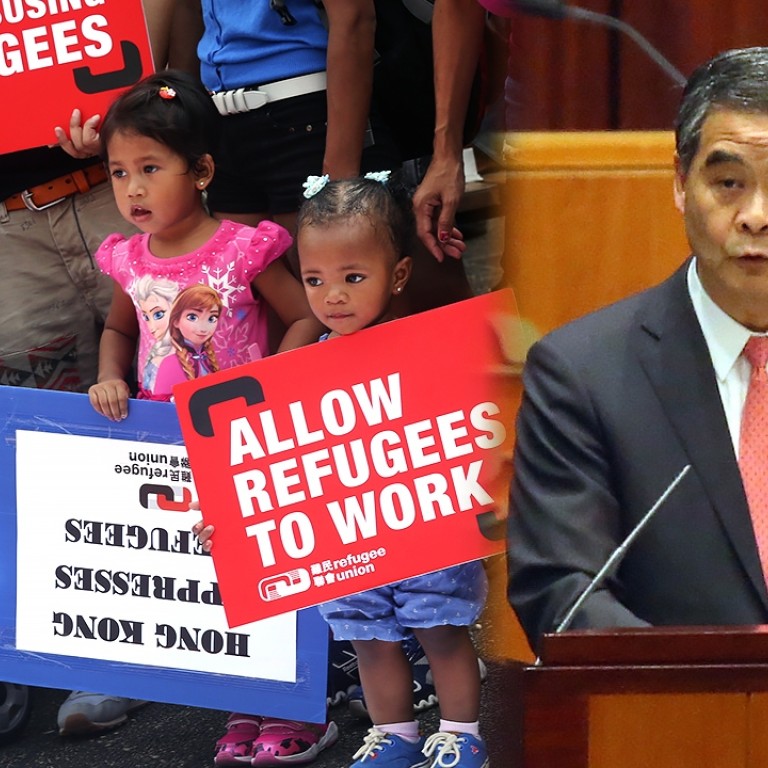
Hong Kong could quit torture convention, says CY
Chief Executive Leung Chun-ying says Hong Kong will unilaterally withdraw from an international convention on torture “if it is needed”, sparking criticism that such a move would undermine the city’s standing in the world .
Leung’s unprecedented comments – which followed his announcement of a wholesale review of the current system for dealing with claims for refugee status and asylum in his policy address – are understood to have caused consternation among officials in the policy department responsible for such matters.
A source with a knowledge of the review said officials were “completely surprised and shocked” by Leung’s comments . It is also unclear how, if at all, Hong Kong can withdraw from an international convention given that it is not a sovereign state.
At a press conference after his address, Leung was asked by a journalist if the city needed to ditch its commitments under the United Nations Convention Against Torture.
Leung responded: “We will consider the issue from different aspects, such as law enforcement and the law itself. You asked if there is a need to quit the international agreement: if it is needed, we will do so.”
The reaction was swift with critics saying such a move would weaken human rights in the city at a time where Hongkongers are sensitive to any erosion of freedoms and rights, especially in light of the mystery surrounding missing booksellers.
Kelley Loper, director of the human rights programme in the faculty of law at the University of Hong Kong, said pulling out of the convention would send a signal that Hong Kong thinks it acceptable to torture people.
Puja Kapai, professor of law at the HKU and a former barrister at the High Court, said to withdraw from such an international treaty would have a major impact in the region. “It would cement the feeling that there are deliberate steps being taken to roll back on human rights in Hong Kong,” she said.
Human rights lawyer Mark Daly called the chief executive’s comments shocking and showed a “dangerous and irresponsible attitude”. He said: “This is unravelling human rights and the rule of law ... principles that make Hong Kong an international city.”
Hong Kong ratified the convention before the 1997 handover and China is also a signatory since 1986. Under the Immigration Ordinance, asylum seekers may lodge non-refoulement claims on grounds including torture, inhuman or degrading treatment or punishment, and persecution because of the convention.
Another HKU law professor, Michael Davis, said pulling out of the convention would mean no refuge for those who need it in the city, as Hong Kong is not under the UN Convention of Refugees.
In the policy address, Leung said there will be a comprehensive review of the strategy of handling non-refoulement claims, including a review of the Immigration Ordinance.
Additional reporting by Raquel Carvalho and Tony Cheung

